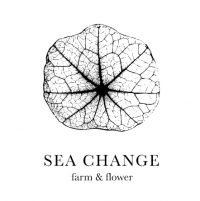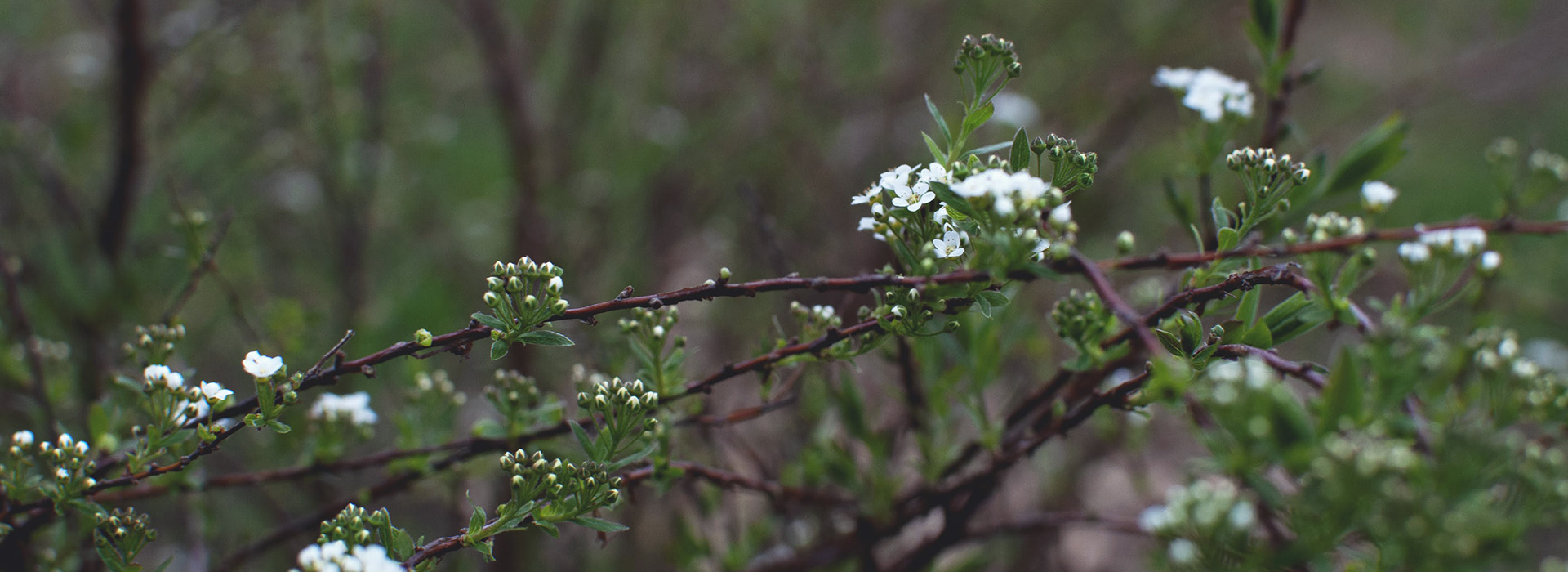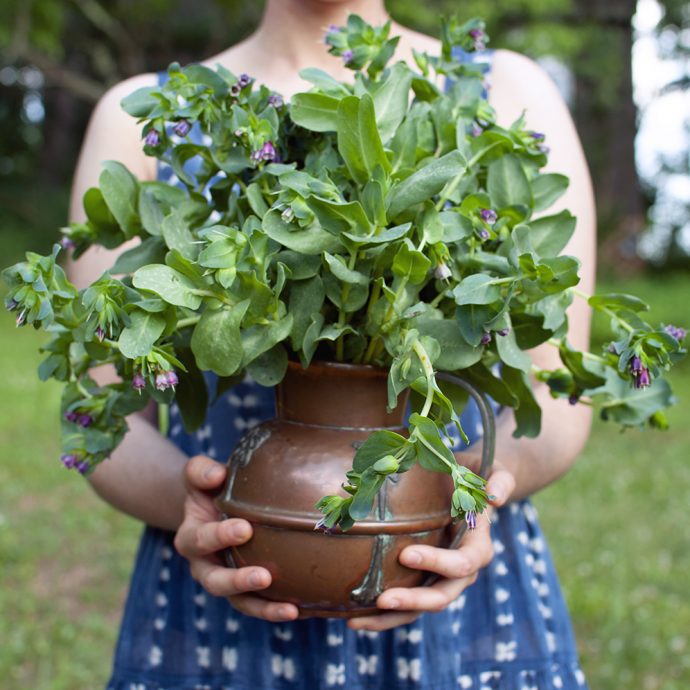Flowers are a tool for healing. My farmer’s market regulars and CSA members have repeatedly said how much they enjoy having flowers in their homes, how these blooms bring them peace and solace.
I can’t think of a time when we have all been in need of healing quite as much as we all are right now.
Beyond that, I can’t think of any group of people who need healing more right now than Black Americans.
This article is dedicated to talking about racism, both in the farmer-florist industry and in general, and the anti-racist work that we pledge to do here at Sea Change.
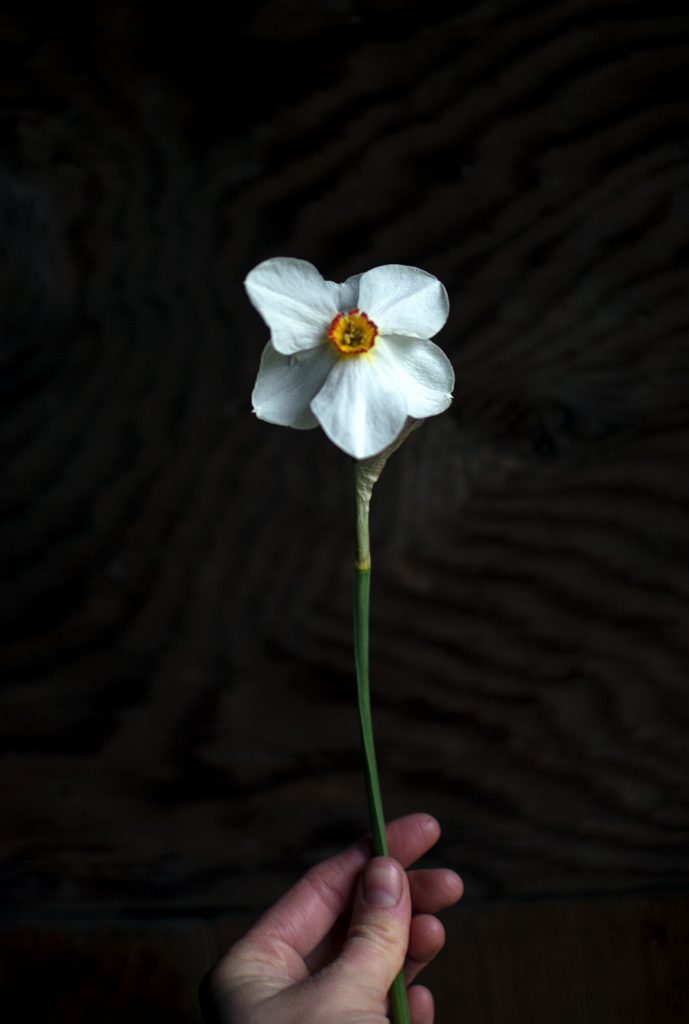
(White) people are starting to step up in a lot of different ways right now: educating themselves and/or their friends about systemic racism; donating to organizations that fight for social justice; paying reparations directly to Black Americans; supporting Black-owned businesses; amplifying the voices and messages of Black Americans on social media; marching in protests; signing petitions.
All of these things are vital. But, the problem is so much bigger than that.
Racial injustices and inequalities exist in almost every field. I straddle two fields that each have their own problems with systemic racism and inequality.


Systemic Racism in Agriculture
In agriculture, Black people are sorely underrepresented. In the 2012 agricultural census, less than half a percent of farms in the US were owned by Black farmers. Black Americans make up about 12% of the population, to put that into perspective.
80% of Black-owned farmland has disappeared over the last century. In 1920, roughly 14% of farms were owned by Black farmers. This dramatic loss of Black-owned farms shows that the disparity in farm ownership isn’t just “the way things have always been” (source).
The census found that farms owned by Black farmers were also less than half the acreage, on average, of those owned by white farmers.
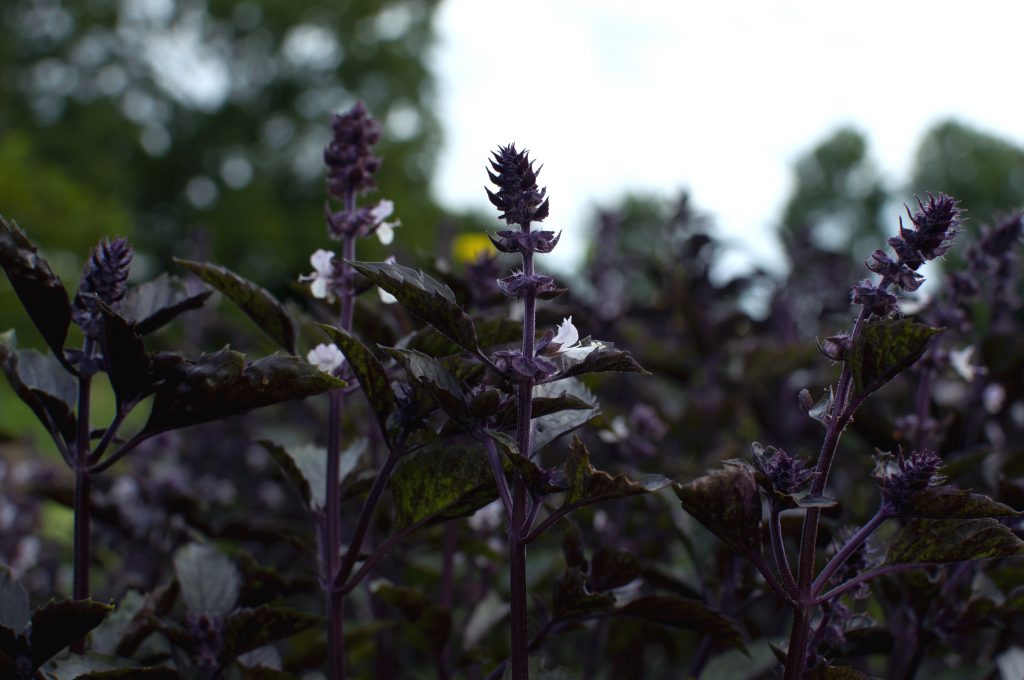
This means that Black farmers make up a tiny power minority in agriculture, which in turn means their voices are often not heard in making agricultural policy.
The USDA discriminate(d/s) against Black farmers
There is also disturbing evidence of long-standing discriminatory USDA programs. In the words of former Secretary of Agriculture Tom Vilsack, “Thousands of claims had been filed against the Department for denial of equal service, many based on race. Many of these claims languished for decades, unresolved” (source).
Discrimination in the USDA led to loans and crop insurance being denied to Black farmers much more often than loans are denied to farmers of other ethnicities (source). When farmers raised complaints against these discriminatory practices, they were ignored.
Some of these claims are outlined in the Pigford v Glickman case, a class action discrimination suit brought against the USDA by Black farmers. The presiding judge ruled in favor of the farmers, and approved settlement payments to them.
This class action suit was used as evidence that the USDA had repaired the damage it had done, but these were largely cosmetic changes.
USDA employees foreclosed on black farmers with outstanding discrimination complaints, many of which were never resolved. At the same time, USDA staff threw out new complaints and misrepresented their frequency, while continuing to discriminate against farmers. The department sent a lower share of loan dollars to black farmers [after Pigford] than it had under President Bush, then used census data in misleading ways to burnish its record on civil rights. And although numerous media outlets portrayed the Pigford settlement payments as lavish handouts—a narrative that originated with right-wing publisher Andrew Breitbart—USDA actually failed to adequately compensate black farmers, and many of them lost their farms
Source: The Counter
*Sigh*… it all makes me feel really sad 🙁

Origins of Agricultural Techniques White-Washed
Another thing that merits talking about here is that agricultural methods are often not attributed to the cultures that invented them.
Many organic growing techniques are touted as “new” and attributed to prominent living organic farmers. A lot of these techniques, though, have their roots in African farming techniques.
For example, farmers grow marigolds and other beneficial flowers next to crops because those attract insects like ladybugs to do natural pest control. That’s called polyculture now, but it’s a practice that came from Nigerian and Ghanaian farmers.
Source: NPR
Next on my reading list is farmer Leah Penniman’s book Farming While Black, in which she discusses the origins of these farming techniques.


Systemic Racism in Floristry and the Wedding Industry
For a 180 degree about-face, the other industry that Sea Change Farm & Flower is involved in is the floral industry, and specifically the wedding floral industry.
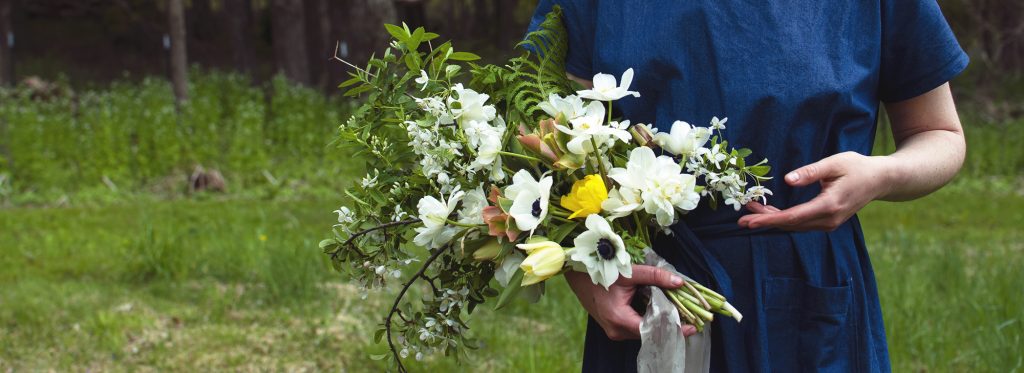
Weddings definitely have trends, and one such trend is the “plantation wedding,” which takes place at one of many historic mansions where an actual working plantation would have operated back in the day. These weddings aim for Gone with the Wind inspiration–blatantly racist vibes and all (BTW: did you know that Gone with the Wind was removed from HBO for the aforementioned racist vibes?)
Such trends present an uncomfortable choice for Black florists: refuse the business of these weddings, or take on a job that romanticizes a period of US history when Black people were enslaved?
Another problem is the underrepresentation of people of color in wedding blogs and magazines. Photos of Black brides are rarely, if ever, featured on high-profile wedding publications like The Knot and Martha Stewart Weddings (source).
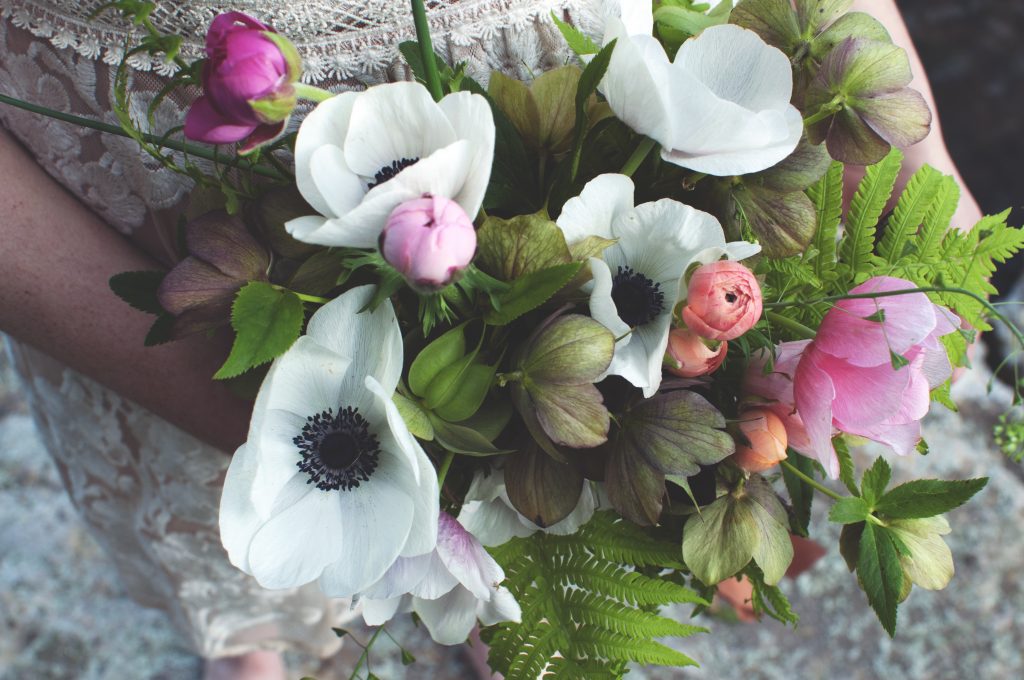
As a white woman planning my own wedding, it’s very easy for me to find inspirational photos of models who look like me wearing dresses, modeling makeup looks, or showing off a fancy up-do. It would be so much harder for my partner and me to envision and plan our wedding if we couldn’t find reference photos of people who looked like us.
One wedding planner has actually started a petition to call for major wedding publications like The Knot, Zola, Martha Stewart Weddings, and many others to step up and commit to representing more diverse love stories in their publications.
These, and so many other things, are big problems in the industry, and I’m going to keep doing research into them and talking about them.
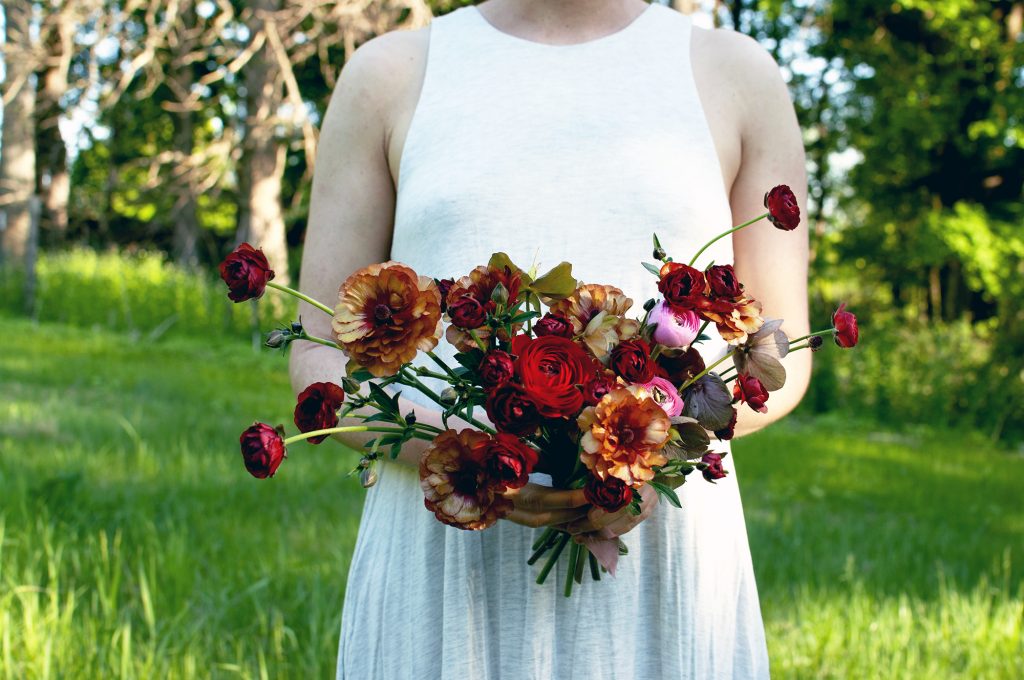
Anti-Racist Work at Sea Change
Here are my personal promises, on behalf of Sea Change, to do better:
1. For the rest of the season, we’ll be donating 10% of our weekly farmer’s market proceeds to an organization doing anti-racist work, or directly to a Black farmer or florist who needs it.
For the entire month of June, our donations went to Soul Fire Farm, a BIPOC-centered community farm committed to ending racism and injustice in the food system. Soul Fire Farm does a lot of really incredible work in this space, and they are located nearby in NY state. If you would like to make a direct donation to support their work, you can donate here. We raised over $400 for Soul Fire Farm in June!
2. I pledge also to look first for Black models for all our future wedding and flower photoshoots, and then feature those photos prominently on our website.
3. Most importantly, I pledge to keep reading, keep listening, keep changing, and keep educating myself about how to do better. I pledge also to share and spread this knowledge.


Have any suggestions for other ways we could do better? I am always ready and willing to take feedback and ideas.
Let’s go, farmers and florists! Let’s do better.
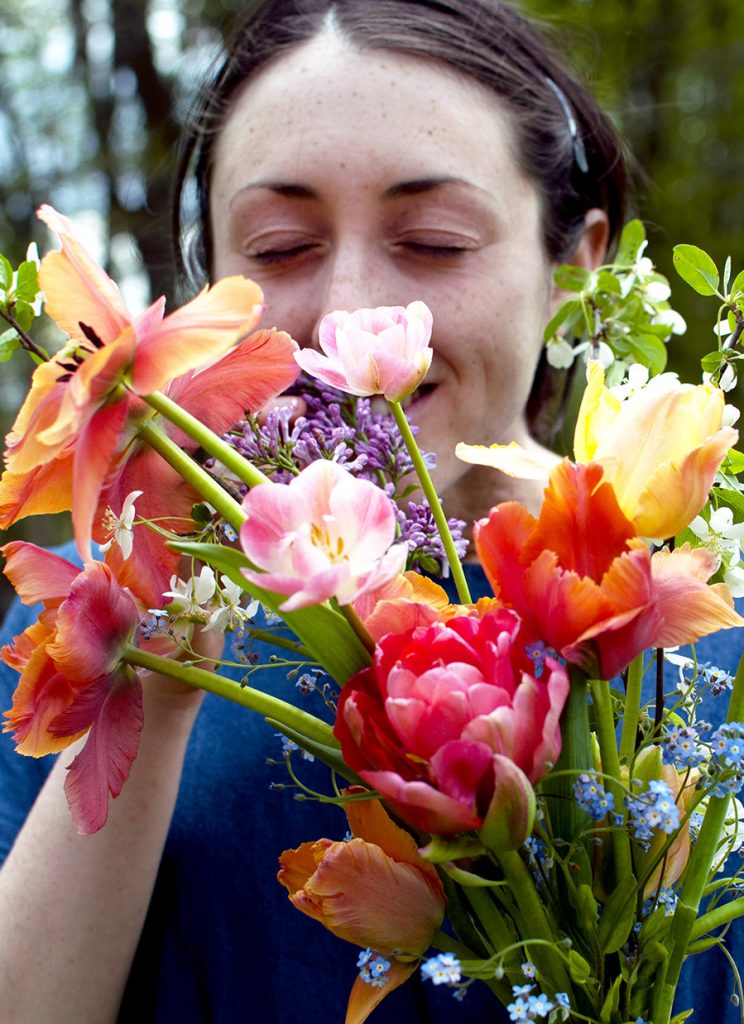
Samantha is the head farmer at Sea Change Farm & Flower.
Want more like this? Sign up for our newsletter here.
